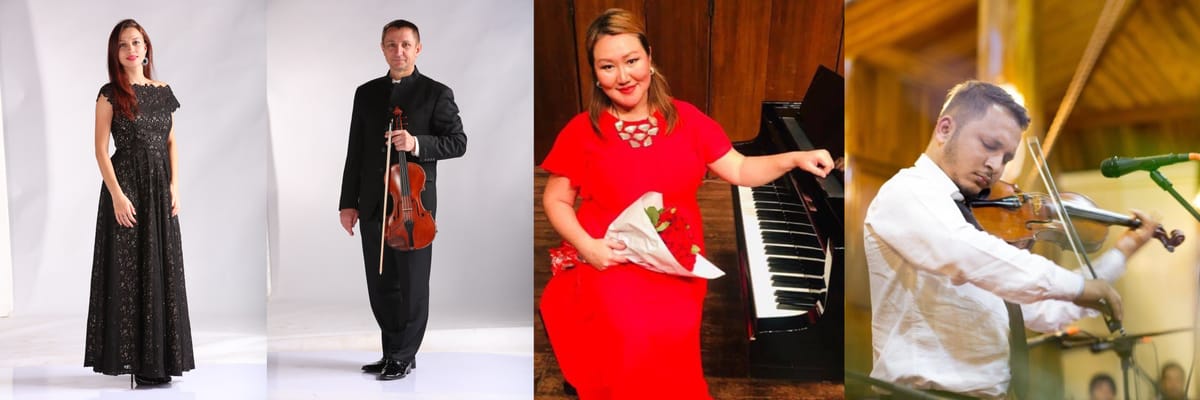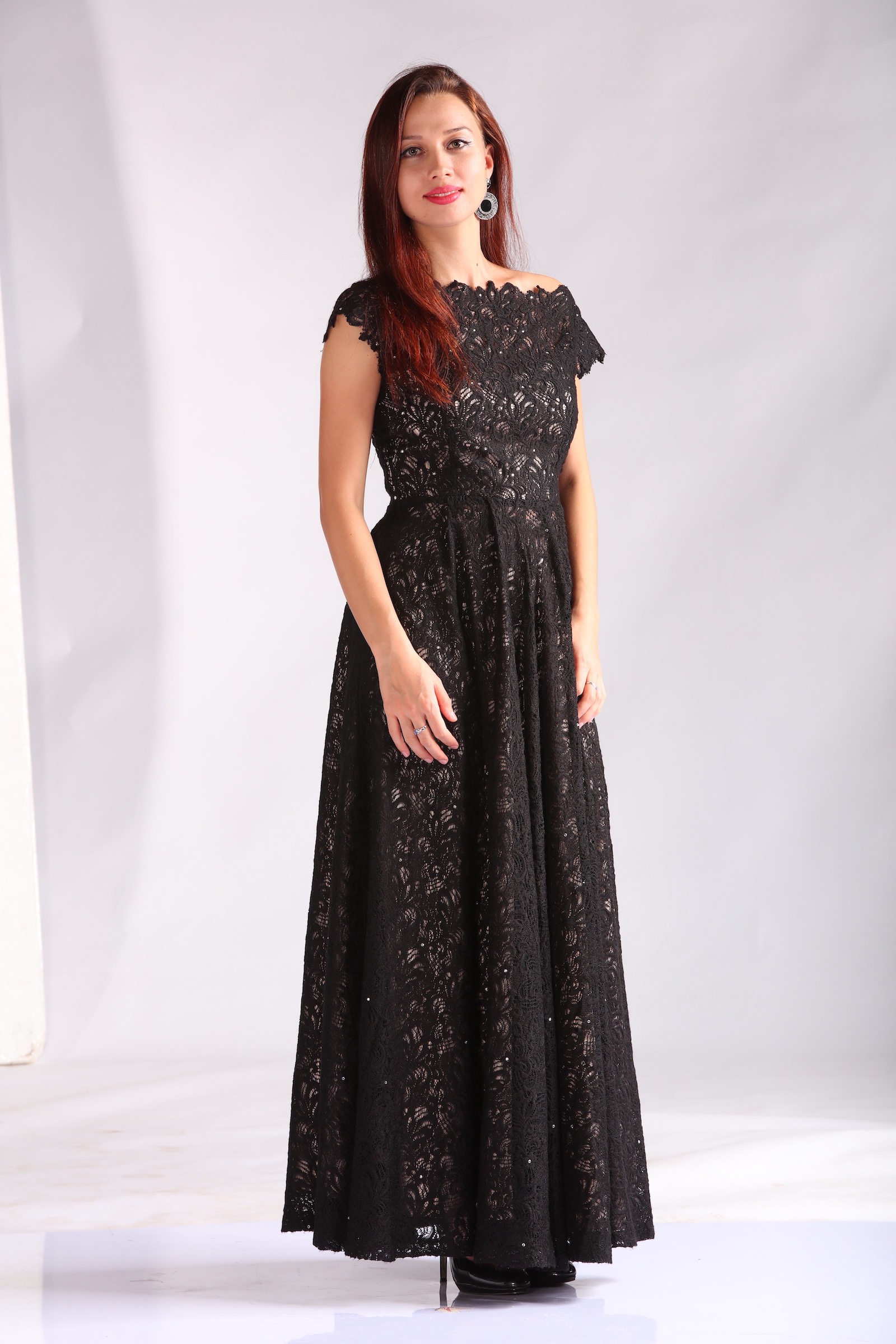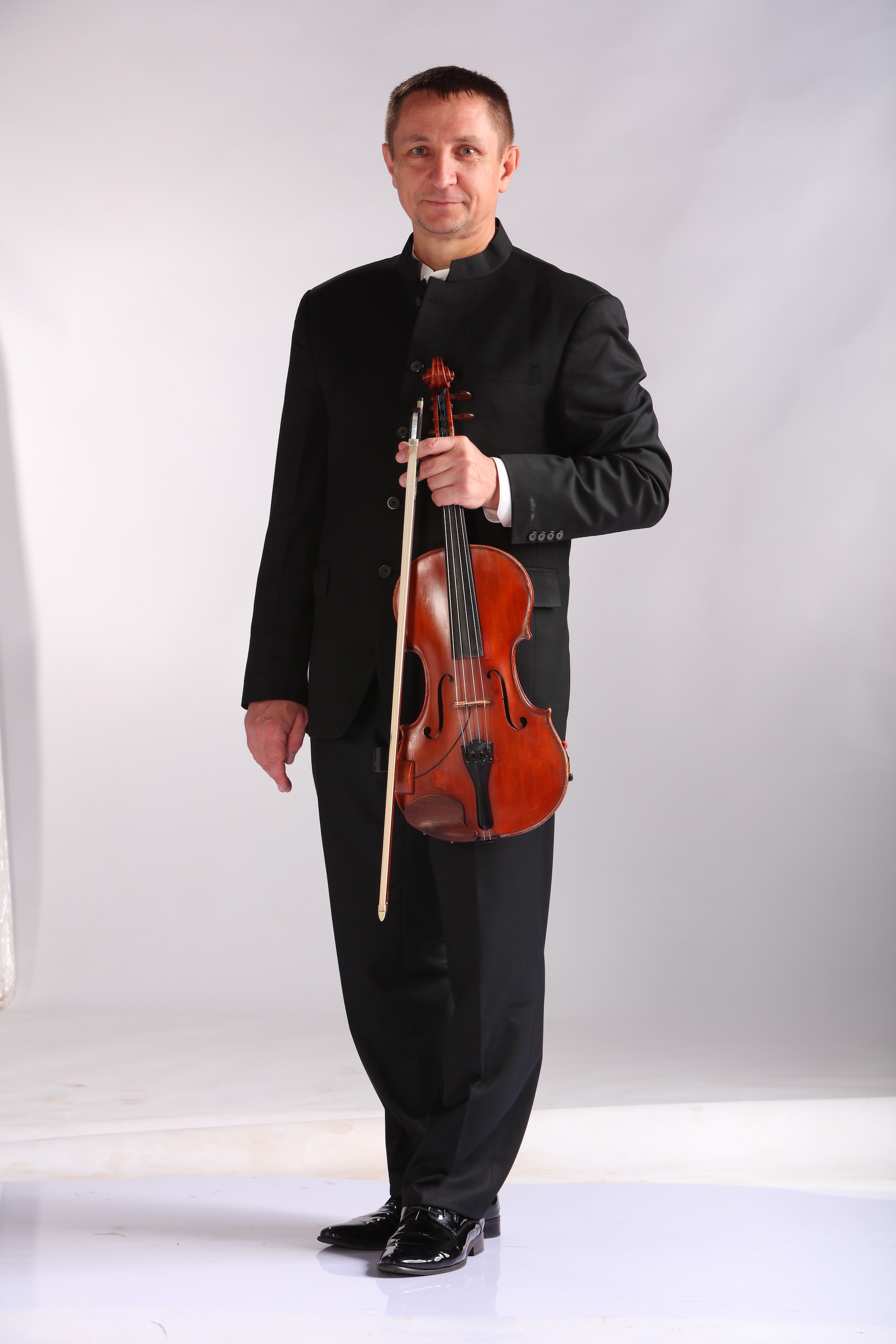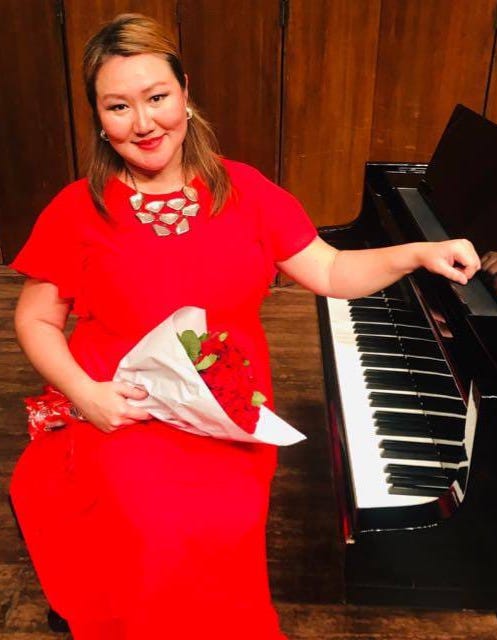The Music Makers: Volume 4

We take a closer look at some of the people who have been an integral part of the Symphony Orchestra of India.

MARGARITA GAPPAROVA, CELLO
ON Stage: How did your collaboration with the SOI begin?
Margarita Gapparova: I first came to Mumbai in September 2010 as a cellist to participate in the concert season of the SOI. In June 2011, I started working as a resident cello player of the SOI Chamber Orchestra.
OS: Describe a regular working day in the life of a resident SOI musician.
MG: It looks like a typical day at the office, but I am very happy that my work is related to the arts. From 10 am till 4pm we play in the orchestra, learn new pieces and work on different concert programmes. From 4pm, we teach in the SOI Music Academy.
OS: Could you describe what you believe was your best performance with the SOI till date?
MG: That is really difficult. All our concerts and programmes have been unique, interesting and memorable.
OS: Similarly, what has been your most fulfilling teaching experience with the SOI?
MG: I have been teaching from the very beginning, right from the days of the Suzuki Program and now in the SOI Music Academy. I am always happy to watch my students succeed, most of whom have already played with an orchestra during our annual school concerts.
OS: Why, according to you, is music important?
MG: Music does not exist by its own. It evokes a response in the souls of careful listeners. It expresses ideas which are hard to express in words. One composer creates happy music while another creates music that is passionate. To feel this music, one does not need stories or pictures.
OS: How did you decide to become a musician?
MG: According to my parents, I started showing interest in music when I was 18 months old. As a child, I could play a small toy piano and sing for hours. Seeing my enthusiasm, my parents took me to the Republican Special Music School when I turned six and I have never looked back, thankful for my parents’ decision to devote my life to music.
OS: Have you explored other genres of music?
MG: When I was studying at the conservatory, musician Rinat Ibragimov often came to Almaty to do masterclasses and work with our chamber orchestra on concerts of Baroque music. That was a great experience. I have also been singing in a choir since childhood. Before I came to Mumbai, I used to sing in the Orthodox churches of our city; this is something I still do when I visit Almaty.
OS: What is your all-time favourite work of music and why?
MG: I cannot pick any specific piece as a favourite. As a cello player though, I would like to mention a few favourites from the repertoire for cello: Cello Suites by Bach, Cello Concerto No. 1 by Shostakovich, Sonata for Cello and Piano by Debussy, among many others.

MIKHAIL BULGAKOV, VIOLA
ON Stage: How did your collaboration with the SOI begin?
Mikhail Bulgakov: I was invited to audition for the SOI at the very beginning by Marat Bisengaliev. I have been with the SOI since its formation.
OS: Describe a regular working day in the life of a resident SOI musician.
MB: Work begins at 10am and continues till 4pm. After that, we either teach students or rehearse if we have an upcoming concert.
OS: Could you describe your most memorable performance with the SOI till date?
MB: Actually, there have been quite a few unforgettable moments with the SOI. I have a lot of great memories from our tours across the world. The most memorable ones were our tours to Switzerland, U.A.E and more recently, the UK.
OS: What has been your best/most fulfilling teaching experience with the SOI?
MB: Teaching and working with children is one of the most meaningful experiences. It gives me hope to teach my students that nothing is insurmountable if you work hard.
OS: Why, according to you, is music important?
MB: For me, music is my philosophy for life. It is something that is most precious to me and I am grateful to be working as a musician.
OS: How did you decide to become a musician?
MB: I believe God decided this for me.
OS: Did you explore/study other genres of music?
MB: I have studied Western classical music but I am interested in all musical genres, including folk music.

ASSEL DAUTPAYEVA, PIANO
ON Stage: How did your collaboration with the SOI begin?
Assel Dautpayeva: I started my work with the SOI in 2015 as a pianist and teacher. In the orchestra, I play parts for piano, celesta, harpsichord and organ, depending on the piece. I find my role really interesting and exciting.
OS: Describe a regular working day in the life of a resident SOI musician?
AD: Usually, my day begins with the preparation of the instrument for rehearsals, if there is a need for a pianist. Then we rehearse the concert programme till late afternoon. Once the group rehearsals are over, I teach the students of the SOI Music Academy.
OS: Could you describe your most memorable performance with the SOI till date?
AD: Over the years, there have been many memorable moments. The most cherished one was when we performed Symphony No.5 by Sergei Prokofiev, conducted by Marat Bisengaliev.
OS: Similarly, what has been your best / most fulfilling teaching experience with the SOI?
AD: I feel really proud and happy when my students make progress and perform well at concerts.
OS: Why, according to you, is music important?
AD: I cannot imagine life without music. It is like air or water, it is everywhere. Music lives in each of us, music is life.
OS: How did you decide to become a musician?
AD: I have always, ever since I can remember, wanted to become a musician.
OS: Have you explored other genres of music?
AD: I like different genres of music. I am fond of playing jazz and singing as well. I love Indian music, including Indian folk and popular music.
OS: What is your all-time favourite work of music and why?
AD: It is hard to name any one piece, as I have many favourite ones and they are all masterpieces in their own right.

PRAYASH BISWAKARMA, VIOLIN
ON Stage: How did your collaboration with the SOI begin?
Prayash Biswakarma: After high school, I was determined to either start studying music or start my career in music. Luckily, I got an opportunity to audition for the SOI. I happened to give my audition not in an enclosed room but outside the JBT gate. Marat Bisengaliev asked me to unpack my violin and play any piece for him. I played one of my most favourite pieces – Scène de ballet by Charles de Bériot. Right there, at the JBT gate, I was asked to join the SOI as a trainee.
OS: Describe a regular working day in the life of a resident SOI musician.
PB: From 10am until 4 pm we have daily practices and rehearsals. During concert season, our practice is extended. We have sectional and tutti practices. Both are equally fun and exciting. Every day we learn something new and when work educates, excites and motivates, time seems to fly by.
OS: Could you describe your most memorable performance with the SOI till date?
PB: The recent UK tour was really special because we were playing my most favourite piece, Rachmaninoff’s Symphony No 2. The composer is also one of my favourites, so it was an honour and a privilege to play it in the most renowned concert halls in the UK.
OS: Why, according to you, is music important?
PB: According to me, music is a sort of meditation. It guides me emotionally and spiritually, and makes me a better man. I have been lucky enough to have parents who made me realise that if there’s anything that I can put my heart and soul into, it is music. They have been my sole support ever since I began. Music should be made compulsory in schools because it can make the world a better place.
OS: How did you decide to become a musician?
PB: When I was three, I started to play the violin and started learning music from my father who is also a music teacher back home. My mom inspired me to participate in various competitions that were hosted around the country. Daily practice and listening to pieces composed by renowned composers made me realise that my passion was music.
OS: Did you explore/study other genres of music?
PB: I have studied Western classical music but I used to explore a lot of other genres like jazz, blues, rock and roll, metal, pop and hip-hop too. When I was in school, I used to be a hard-core progressive metal fan and also played in a local progressive metal band. I used to play the guitar, piano, drums, percussion, and also sing.
OS: What is your all-time favourite work of music?
PB: Rachmaninoff’s Symphony No 2 and Piano Concerto No 2 are my all-time favourite works. The melody and smoothness of these pieces transport me to a different world. I find them to be complete in every way.
All Images © NCPA Mumbai
This piece was originally published by the National Centre for the Performing Arts, Mumbai, in the June 2019 issue of ON Stage – their monthly arts magazine.






